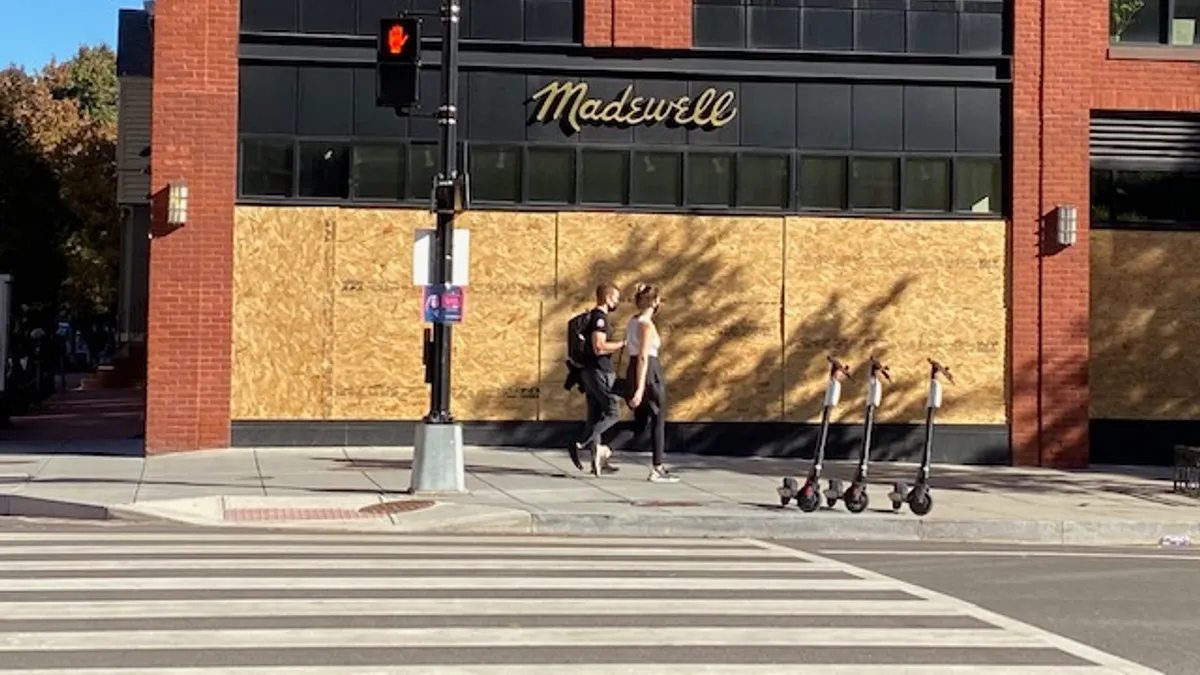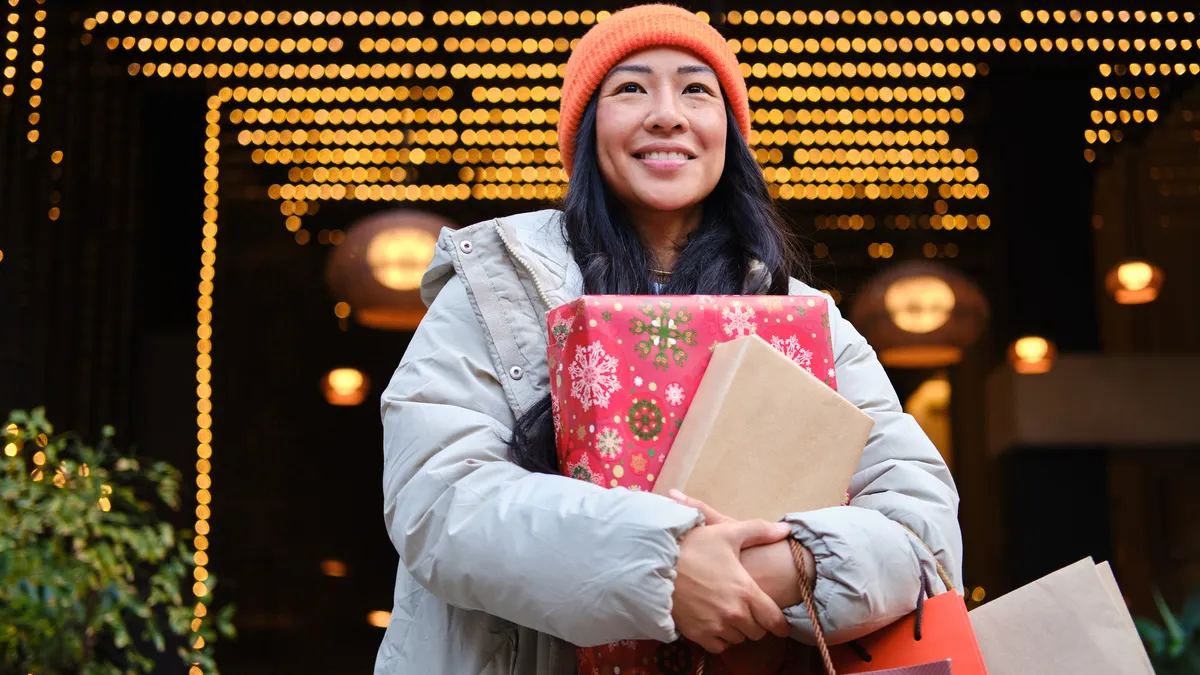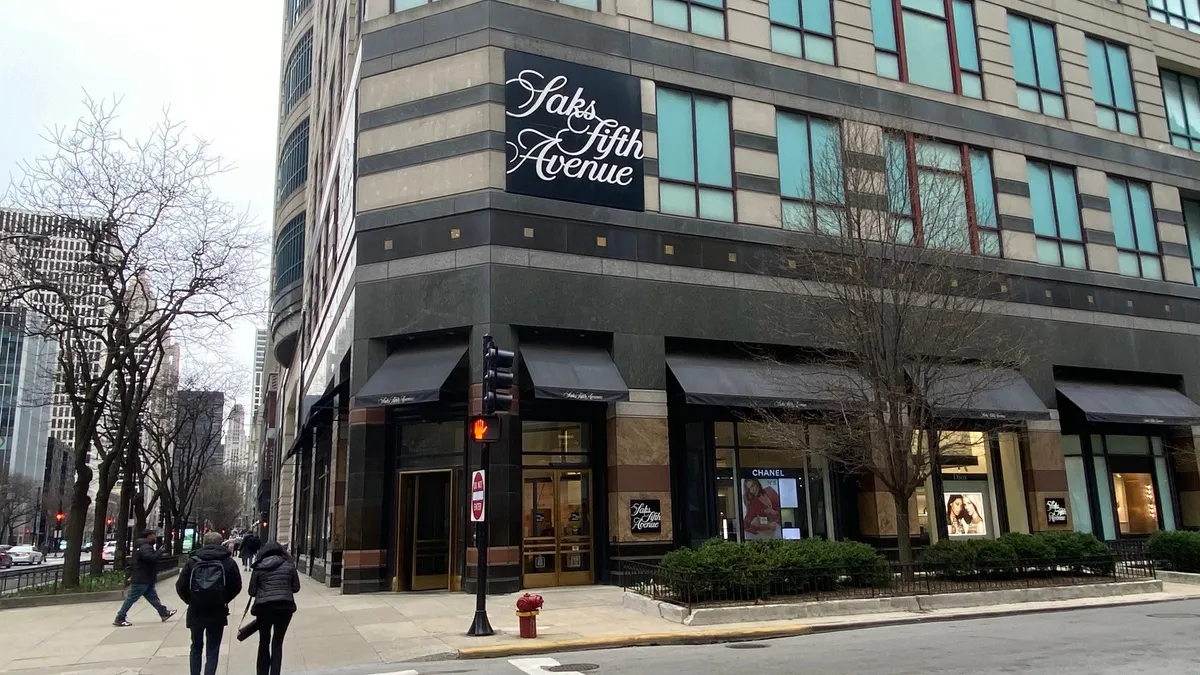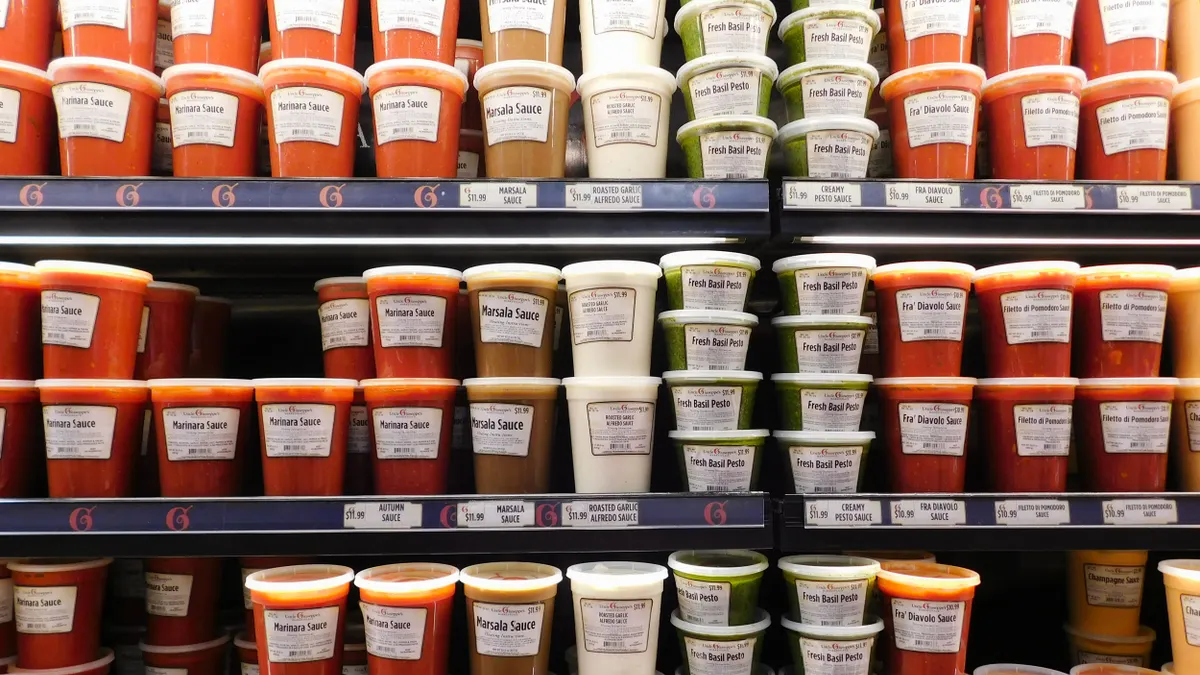With the U.S. election results for president and some Congressional seats still undeclared as of press time, businesses and consumers are withstanding further uncertainty in an already uncertain time.
"[O]fficials are preparing the public for delayed results due to the surge in mail-in ballots and close election day results in key battleground states," according to a report released Wednesday by PwC. "That alone should go far to moderate reactions to the election, but businesses and the capital markets will nonetheless prepare for an environment of uncertainty where outlooks for policy impacts can change overnight."
Retailers' challenges extend to the streets. Several prepared for potential unrest ahead of the election, with facilities management company ServiceChannel as of Nov. 4 fielding work orders for preventive board-up or related security measures at 1,156 retail locations in several cities across the country. The company has been working with brands including CVS, Nike and Louis Vuitton to protect stores against graffiti, broken windows, flooding and fires, according to an email.
National Retail Federation CEO Matthew Shay on Wednesday urged calm as votes continued to be counted.
"While the outcome remains unclear, we encourage the American electorate to continue to be patient and peaceful as we await the results on who will lead our nation as president for the next four years," he said in a statement. "For over 200 years, our democratic process has proven to be a fair and just system and every vote must be counted. Regardless of the outcome, we look forward to working with elected leaders across the country and in our nation's capital for an even safer and stronger America."
Potential unrest isn't the only challenge for retailers right now, as the election deters shopping more broadly. Store traffic could fall 35% to 50% this election week, which began Nov. 1, especially with delayed poll results, according to a Tuesday note from Morgan Stanley analyst Kimberly Greenberger. The unpredictability itself muddies the forecast, but she noted that in 2012, election week traffic fell 4.4 points month over month and 8% year over year, and in 2016, traffic was down 1.9 points month over month and 7.6% year over year.
"[W]e expect some election-driven volatility over the next few weeks, and note this data series could be noisy through the holiday season as retailers work to spread traffic more evenly through November and December," Greenberger wrote .
The impact extends online as well, with Adobe warning that, if past patterns hold, Wednesday's online retail sales could drop by $300 million to below $2 billion; the firm is forecasting $16 billion in online spending during election week (Nov. 1-7). The firm also found that 26% of U.S. consumers said the election's outcome would impact their holiday spending, with 63% of retailers believing that consumers will be more confident after the presidential election.
Otherwise, most of the season's e-commerce promises to rise above $2 billion each day, topping $3 billion a day from Nov. 22 to Dec. 3, Adobe also found. The firm on Wednesday reiterated its prediction that online holiday sales will reach $189 billion, 33% higher than last year. If the federal government manages to pass another pandemic relief bill before the holidays, that could rise another $11 billion to $200 billion, according to Adobe.
There were some bright spots for some retail sectors, notably the cannabis market. Initiatives in several jurisdictions, which have passed or seem likely to pass, would decriminalize possession or sales, or ease legal and financial hurdles for businesses. MKM Partners Executive Director Bill Kirk called the number of ballot measures "historic" and noted that Arizona's question on legalizing marijuana possession may have added to Joe Biden's voter count. "If you want to turn out future voters, supporting cannabis helps," Kirk said in a Wednesday client note.
There may be more subtle impacts on apparel sales, according to Alan Behr, fashion industry attorney and partner at Phillips Nizer. "If Trump goes, we may not see a red necktie in Washington any time soon," he said in an email. "Biden's use of the four-in-hand knot during the debates, in opposition to Trump's Windsor knot, does hint at a certain sense of stylistic self-confidence. Or it could simply mean his stylist has more sway over him than does Trump's."
Although it's not clear when, the election will eventually be settled, but that won't exactly relieve the uncertainty retailers face right now. The months-long COVID-19 pandemic is on the rise, a significant obstacle to holiday shopping this year even if stores and malls remain open, analysts warn.
"Covid-19 remains the greatest risk to future traffic trends, as rising cases could deter consumers from visiting stores or cause another round of temporary store closures," Morgan Stanley's Greenberger said. "Although we don't expect aggressive lockdowns to be implemented in the near-term, we will continue to monitor virus spread data and its impact on retail traffic closely."
























